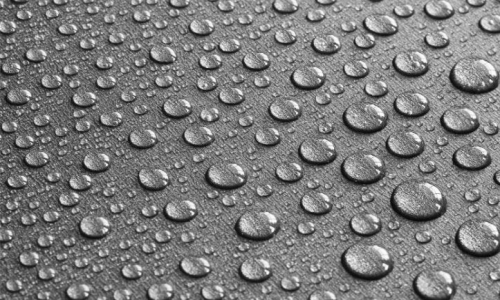


 2:6:41
2:6:41  2024-11-26
2024-11-26  834
834

Plastics are now everywhere, with tiny fragments found in several major organs of the human body, including the placenta.
Given how easily the microscopic particles infiltrate our tissues, it's vital that we learn exactly what kinds of risks they could pose to our health.
Researchers have been busy studying the effects of microplastics in mini-replicas of organs, and in mice, to get a sense of how they might impact the human body. However, the concentrations of microplastics used in those studies might not reflect people's real-world exposure, and few studies have been done in humans.
In March, a small study in Italy found shards of microplastics in fatty deposits surgically removed from patients who had an operation to open up their clogged arteries – and reported their health outcomes nearly 3 years later.
Removing fatty plaques from narrowed arteries in a procedure called a carotid endarterectomy reduces the risk of future strokes.
The team behind this recent study, led by Raffaele Marfella, a medical researcher at the University of Campania in Naples, wondered how the risk of stroke – as well as heart attacks and death – compared between patients who had microplastics in their plaques and those who did not.
Following 257 patients for 34 months, the researchers found nearly 60 percent of them had measurable amounts of polyethylene in plaques pulled from their fat-thickened arteries, and 12 percent also had polyvinyl chloride (PVC) in extracted fat deposits.
PVC comes in both rigid and flexible forms, and is used to make water pipes, plastic bottles, flooring, and packaging. Polyethylene is the most commonly produced plastic, used for plastic bags, films, and bottles, too.
With microplastics previously found coursing through people's bloodstream, the researchers were reasonably concerned about heart health.
Lab-based studies suggest microplastics can trigger inflammation and oxidative stress in heart cells, and impair heart function, alter heart rate, and cause scarring of the heart in animals such as mice.
"Observational data from occupational-exposure studies [also] suggest an increased risk of cardiovascular disease among persons who are exposed to plastics-related pollution, including polyvinyl chloride, than that seen in the general population," Marfella and colleagues write.
In the study, patients with microplastics in their excised plaques were 4.5 times as likely to have experienced a stroke, non-fatal heart attack or died from any cause after 34 months than people who had no detectable microplastics in the plaques that surgeons had removed.
The amount of microplastics, and even smaller particles called nanoplastics, was measured using a technique called pyrolysis-gas chromatography-mass spectrometry, and their presence confirmed using another method, stable isotopes analysis, which can distinguish between the carbon of human tissues and that of plastics made from petrochemicals.
Microplastics were also visible under powerful microscopes: The researchers observed plastic fragments with jagged edges inside immune cells called macrophages, and within the fatty plaques. Examining the tissue samples, the team also found higher levels of inflammatory markers in patients with microplastics in their plaques.
Bear in mind, however, that an observational study like this can't definitively conclude that microplastics are causing the downstream heart effects; only that there is an association. The study did not consider other risk factors for cardiovascular disease, such as smoking, physical inactivity, and air pollution.
"Although we do not know what other exposures may have contributed to the adverse outcomes among patients in this study, the finding of microplastics and nanoplastics in plaque tissue is itself a breakthrough discovery that raises a series of urgent questions," such as how to reduce exposure, explained pediatrician, public health physician and epidemiologist Philip J. Landrigan, of Boston College, in an accompanying editorial.
Plastic production has exploded in the past two decades, only a fraction of which has been recycled, and yet rates of cardiovascular disease have been falling in some parts of the world, so more research is needed to understand the link between the two.
Reality Of Islam |
|

New scienti

This is the

A computer

Auburn Univ
 9:3:43
9:3:43
 2018-11-05
2018-11-05
10 benefits of Marriage in Islam
 7:5:22
7:5:22
 2019-04-08
2019-04-08
benefits of reciting surat yunus, hud &
 9:45:7
9:45:7
 2018-12-24
2018-12-24
advantages & disadvantages of divorce
 11:35:12
11:35:12
 2018-06-10
2018-06-10
 6:0:51
6:0:51
 2018-10-16
2018-10-16
allah will not answer all your prayers
 6:56:28
6:56:28
 2022-01-01
2022-01-01
 8:15:37
8:15:37
 2023-02-16
2023-02-16
 2:11:12
2:11:12
 2022-10-15
2022-10-15
 11:2:27
11:2:27
 2022-10-06
2022-10-06
 6:0:8
6:0:8
 2023-03-19
2023-03-19
 6:14:17
6:14:17
 2018-06-21
2018-06-21
 7:45:39
7:45:39
 2018-06-21
2018-06-21
 5:41:46
5:41:46
 2023-03-18
2023-03-18
| LATEST |